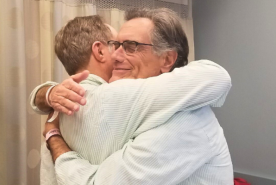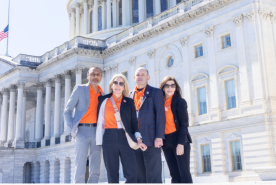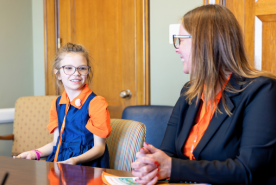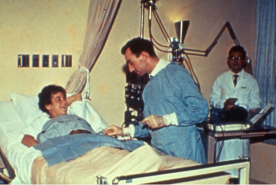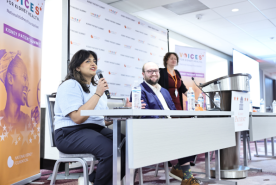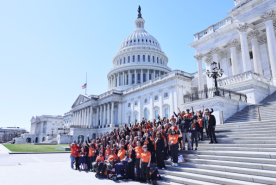July 20, 2020
Dedicated NKF volunteers and staff band together to launch first-ever large-scale virtual medical conference
Educating healthcare professionals about the latest research and advances in clinical care for patients with all stages of kidney disease is a critical pillar of NKF's mission. It's also the primary goal of the Annual Spring Clinical Meetings, one of the largest multi-disciplinary educational conferences of its kind.
But during the first weeks of March, when final preparations for the 2020 conference to be held in Louisiana were underway, NKF, like many other nonprofits, faced a charging enemy: the worst pandemic in more than 100 years.
Though the total number of COVID-19 cases was still low nationwide, the vulnerability of kidney disease patients and transplant recipients to serious complications from COVID-19 was becoming more apparent. Implementing the NKF Spring Clinical meeting as a face-to-face conference seemed less and less possible. With over 3,000 people already registered and 300 faculty members scheduled to provide educational content, brave volunteer faculty, staff and supporters made the bold decision to take the conference completely virtual.
Supporters like you have empowered a long history of "firsts" for the kidney community. With support from passionate volunteers, NKF was the first to produce educational programs on the delivery of dialysis for health professionals when dialysis was still in its infancy, the first to develop clinical practice guidelines for the care of patients receiving dialysis, and the first to develop and disseminate kidney disease patient educational materials on a national scale.
Despite mounting challenges, we decided that a pandemic couldn't halt our efforts to improve kidney patient care.
The new virtual format included 130 sessions with 338 presenters and included Deputy Secretary Eric D. Hargan of the U.S. Department of Health and Human Services as the Plenary Speaker who presented the KidneyX Patient Innovator Awards. Every session exceeded expectations. Multiple participating presenters reported a higher number of questions from audience members compared to in-person lectures at previous meetings.
The meeting also increased equity and accessibility. Persons without financial support for travel or who could not take time off from work could now participate in virtually all sessions and this flexibility enhanced NKF's ability to meet its mission. In fact, overall live and on-demand participation exceeded 3,800 and was 24% higher than the previous year.
Most importantly, the meeting allowed participants a chance to distance themselves from the COVID-19 pandemic for a few hours and focus on delivering the best possible care for kidney disease patients.


